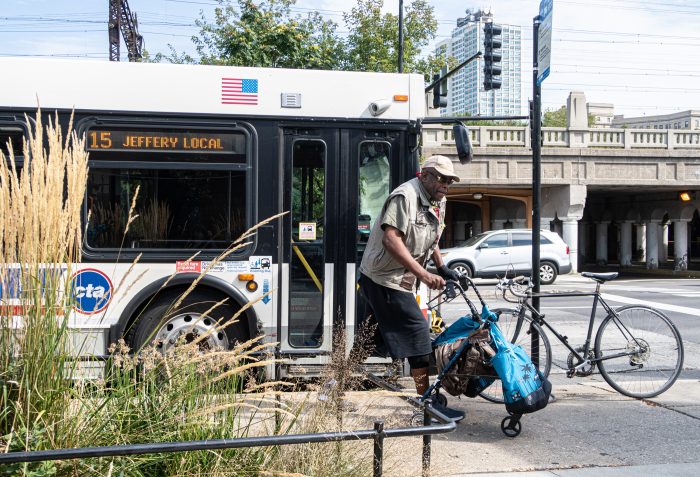The Infrastructure Investment in Jobs Act (IIJA) provides a historic opportunity for the Chicago area to move beyond car-centric planning and advance racial and environmental justice through transportation investments.
Now we need to make sure regional leaders take advantage of this opportunity. We can’t afford to see these funds go to wasteful roadway projects that only worsen the inequity in our regional transportation system.
This week Active Trans joined a coalition of 12 civic and environmental advocates that is calling for our transportation agencies in the region to develop an inclusive and transparent approach in determining which projects to put forward for newly available federal funds.
This inclusive and transparent approach should center the projects’ impacts on racial equity and climate change.
Following are excerpts from the letter, which was sent to leaders at the Chicago Department of Transportation (CDOT), Chicago Transit Authority (CTA), Metra, Pace, Regional Transportation Authority (RTA), and the Chicago Metropolitan Agency for Planning (CMAP).
As we look towards the future, the Infrastructure Investment in Jobs Act (IIJA) provides an historic opportunity to leverage transportation investment to build healthier, more sustainable, and more equitable communities.
This includes enhancing and expanding our public transit system, making it easier for people to walk or bike for short trips rather than driving or hailing a car, and electrifying public transit fleets and private vehicles.
Much of this opportunity in the region lies in accessing the newly expanded or created discretionary grant programs under the IIJA, totaling more than $75 billion dollars.
The Biden Administration has made clear that they intend to infuse equity, climate, and community engagement into agency decision making about how to distribute these funds. For the Chicago area to successfully access much of this funding, we will need to do the same.
Traditionally, these processes have been opaque, preventing the public from learning the results until after the application is submitted. Rather than working together to prioritize projects that deliver the greatest benefit to the region, agencies have tended to work in siloes and compete for funding.
This has contributed to limited progress on regionally significant projects, particularly those that would increase transit access in marginalized communities.
This can’t happen again or our region risks wasting this historic opportunity.

